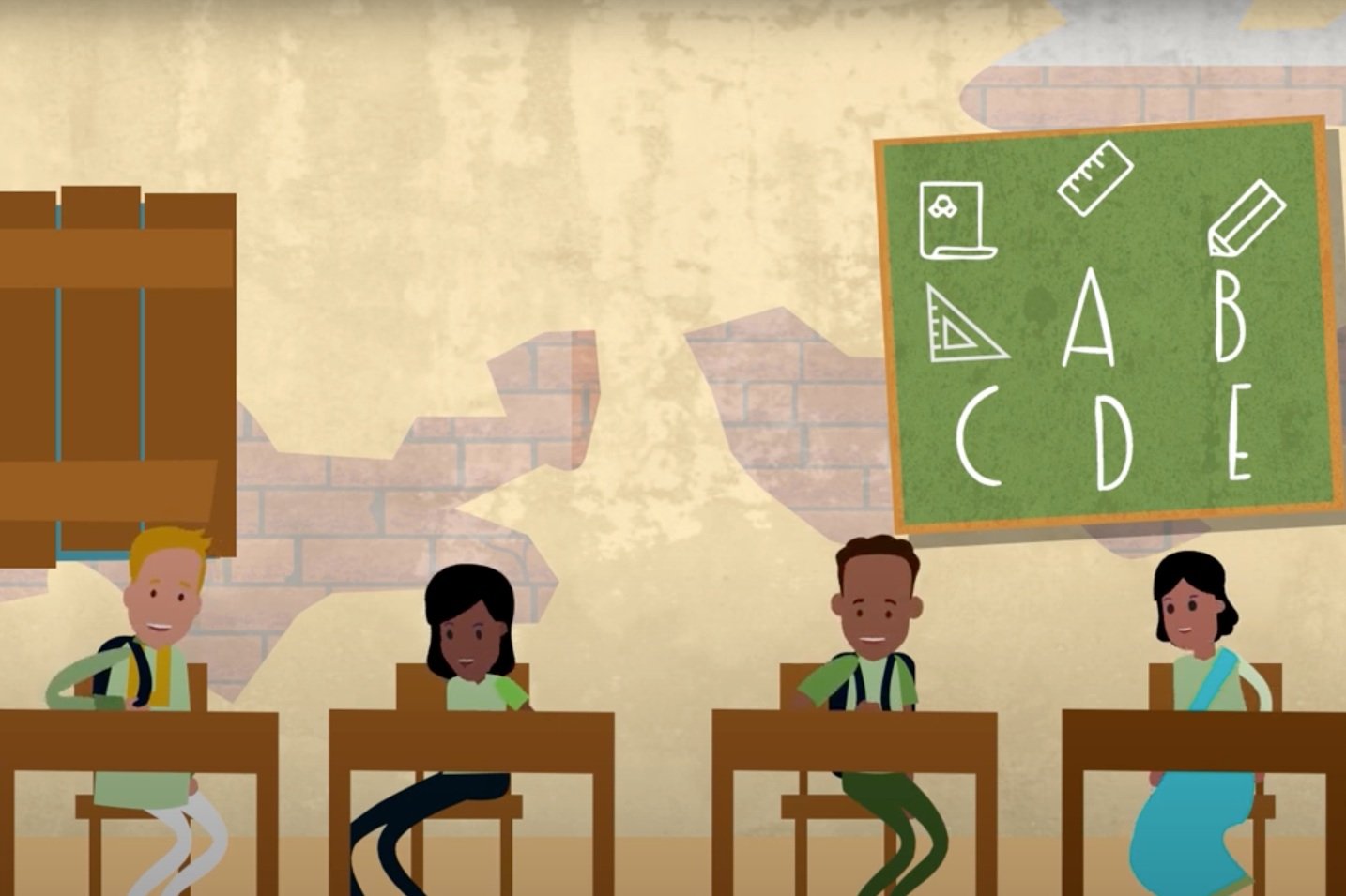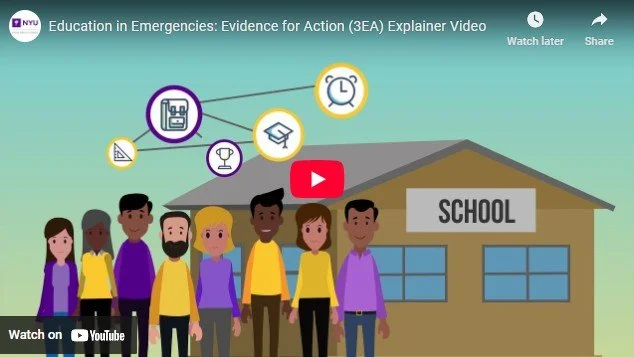Resources
Competing or complementary goals for primary education: social-emotional learning across the Nigerien education system
This paper explores how SEL is perceived and implemented in the primary schools of conflict-affected Diffa, offering a unique lens into the diverse interpretations of SEL by various stakeholders.
Through a meticulous analysis of 58 semi-structured interviews encompassing a broad spectrum of perspectives—from Ministry officials and NGOs to school directors and parents—this study uncovers five distinct conceptualizations of SEL. Each reflects the priorities and concerns rooted in the stakeholders' experiences with conflict, trauma, psychosocial challenges, poverty, and religious beliefs. These findings highlight the varied expectations and objectives for SEL among different groups and show the complexity of integrating such programs in environments where education itself is under siege by myriad challenges.
Authors: Sarah Kabay, Hirokazu Yoshikawa, and Lindsay Brown.
KEYWORDS: Primary Education, Sub-Saharan Africa, Emotional Learning, Social Development, Conflict Resolution
Patterns of self-regulation and emotional well-being among Syrian refugee children in Lebanon: An exploratory person-centered approach
This study explores patterns of self-regulation and emotional well-being among Syrian refugee children in Lebanon, employing a person-centered approach, responding to theoretical challenges articulated by Dante Cicchetti and other psychologists. Using latent profile analysis with data from 2,132 children, we identified seven distinct profiles across cognitive regulation, emotional-behavioral regulation, interpersonal regulation, and emotional well-being. These profiles showed significant heterogeneity in patterns of self-regulation across domains and emotional well-being among Syrian children. Some profiles consistently exhibited either positive (“Well-regulated and Adjusted”) or negative (“Moody and Frustrated”) functioning across all domains, while others revealed domain-specific challenges, e.g., particularly sensitive to interpersonal conflict. This heterogeneity in the organization of self-regulatory skill and emotional well-being challenges the traditional homogeneous view of child development in conflict settings. The study also underscores the profiles’ differential associations with demographic characteristics and experiences, with school-related experiences being particularly salient. We discuss the implications of these findings for future research in developmental psychopathology on self-regulation and emotional well-being in conflict-affected contexts. In addition, we advocate for tailored interventions to meet the diverse needs of children affected by conflict.
Evaluating Program Enhancement Strategies for Remedial Tutoring: A Cluster-Randomized Control Trial With Syrian Refugee Students in Lebanon
Despite widespread enthusiasm for remedial education programming with refugee populations, there is little rigorous evidence on how to design and implement such programs. We employ a cluster-randomized design of non-equivalent treatment groups to test the impact of access to two types of program enhancement: longer program duration and the addition of skilltargeted social and emotional learning (SEL) activities for Syrian refugees enrolled in Lebanese public schools. We find that, compared to 10 weeks of programming, 26 weeks marginally increases students’ literacy skills (ES = 0.04) and significantly improves behavioral regulation (ES = 0.31), but students reported less positive perceptions of their public school environment (ES= −0.83 to −0.89) and remedial tutoring site (ES= −0.15 to −0.24). We also find that the addition of skill-targeted SEL activities to 26 weeks of programming results in higher student reports of school-related stress compared to programming without skill-targeted activities (ES = 0.21). Implications for program and policy are discussed.
How to Support School-Aged Children Living in Crisis Contexts? Evidence-based Recommendations for Stakeholders
Science is the most useful when it catalyzes change. In this tool, we provide actionable recommendations and guidance on how to best support education in emergencies, to get the evidence into the capable hands of the education stakeholders.
Reimagining Education in Emergencies: Lessons from research in three crisis-affected countries RewirEd Summit virtual session
The pre-recorded video was disseminated to global key stakeholders participated in the RewirEd summit.
التعليم في حالات الطوارئ
الوصف: يركز هذا الفيديو التوضيحي على "إنشاء الأبحاث": الدروس المستفادة والنصائح العملية للباحثين وأصحاب المهنة لتوجيه المجال نحو إنشاء الأبحاث. للمزيد من المعلومات حول هذا العمل، اقرأ هنا: https://www.cambridge.org/core/journa..
L'éducation en Situations d'Urgence : Vidéo Explicative des Preuves Pour l'Action (3EA)
Cette vidéo explicative est axée sur « Construire une science pour l'action » : leçons tirées et conseils pratiques pour les chercheurs et les praticiens afin de faire avancer le domaine de l’éducation vers la construction d'une science pour l'action.
Education in Emergencies: Evidence for Action (3EA) Explainer Video
This explainer video is focused on “Building a Science for Action”: Lessons learned and practical advice for researchers and practitioners to move the field towards building science for action. The 3EA initiative, born out of a research-practice partnership between TIES and the International Rescue Committee, aims to generate evidence and tools on what works to improve children’s holistic learning and development. This work also aims to improve the quality of program implementation and to answer the questions of what works, how, for whom, and under what conditions.
Education in Emergencies: Evidence for Action (3EA) Explainer Video
This explainer video is focused on “Building a Science for Action”: Lessons learned and practical advice for researchers and practitioners to move the field towards building science for action. The 3EA initiative, born out of a research-practice partnership between TIES and the International Rescue Committee, aims to generate evidence and tools on what works to improve children’s holistic learning and development. This work also aims to improve the quality of program implementation and to answer the questions of what works, how, for whom, and under what conditions.
Can tutoring informed by social-emotional principles improve learning outcomes? A look across multiple conflict-affected contexts
What can be done to improve learning outcomes for the millions of children growing up in conflict-affected societies and enrolled in under-resourced school systems? How can the global community safeguard the right of every child, including those in crisis settings, to a quality education and position them to heal, learn and thrive? What are the best interventions that achieve the greatest outcomes for the most children in humanitarian contexts?
Children's learning and development in conflict- and crisis-affected countries: Building a science for action
This paper critically reviews the opportunities and challenges in designing and conducting actionable research on the learning and development of children in conflict- and crisis-affected countries. We approached our review through two perspectives championed by Edward Zigler: (a) child development and social policy and (b) developmental psychopathology in context. The aim of the work was to answer the following questions: What works to enhance children's learning and development in such contexts? By what mechanisms? For whom? Under what conditions? How do experiences and conditions of crisis affect the basic processes of children's typical development? The review is based on a research–practice partnership started in the Democratic Republic of the Congo in 2010 and expanded to research in Niger and Lebanon in 2016. The focus of the research is on the impact of Healing Classrooms (a set of classroom practices) and Healing Classrooms Plus (an additional set of targeted social and emotional learning activities), developed by the International Rescue Committee, on children's academic outcomes and social and emotional learning. We sought to extract lessons from this decade of research for building a global developmental science for action. Special attention is paid to the importance of research–practice partnerships, conceptual frameworks, measurement and methodology. We conclude by highlighting several essential features of a global developmental science for action.
Improving Education for Refugee Children: Insights from Rigorous Research
By the start of 2018, 25 million refugees fled across international borders to seek protection. Over half of these refugees are under the age of 18. Little rigorous evidence exists on strategies to promote refugee children’s academic learning and socio-emotional development. What role can universities play in helping to close this critical gap in evidence? This panel describes the state of education for refugee children broadly, zeros in on the conditions of refugee children in Lebanon and Niger, and summarizes insights evaluating innovative strategies to promote the academic learning and social-emotional development of the children.











